Today was the call-up for military service in Nong Bua Daeng. There were also young men from our village with their families to take part in the selection process.
The conscription process in Thailand begins with a lottery system that determines which men will be selected for military service. The lottery is held annually, and the results are announced in April. Those who are selected are required to undergo a physical examination to determine their fitness for military service.
According to media reports, the number of conscripts for the three armed forces and related agencies typically ranges between 80,000 and 100,000 annually, which is a drag on the national budget and the country’s economy.
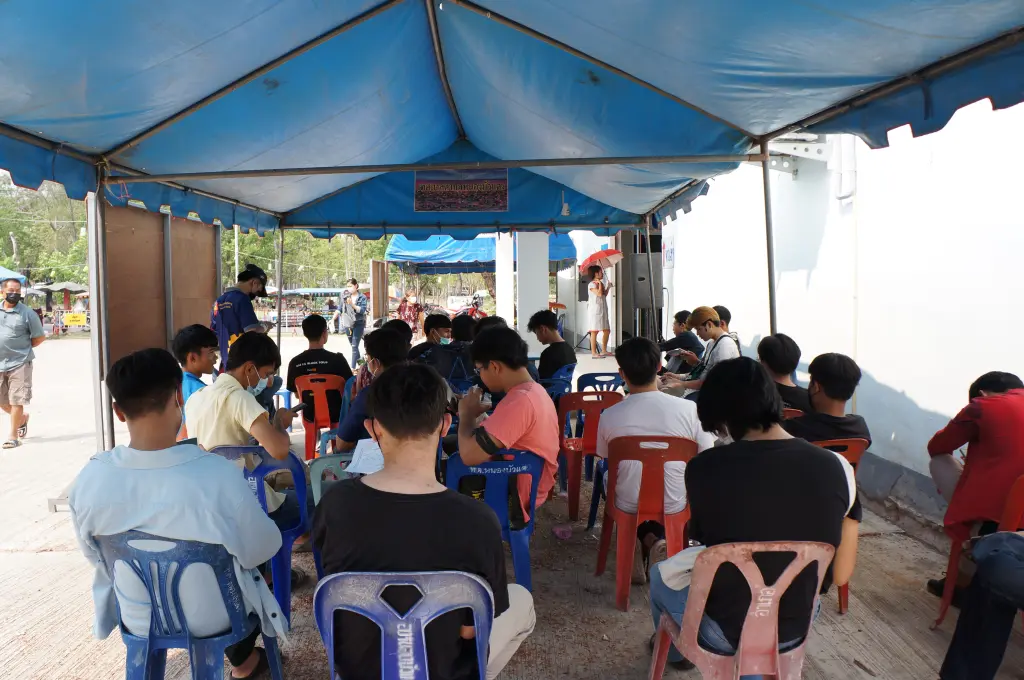
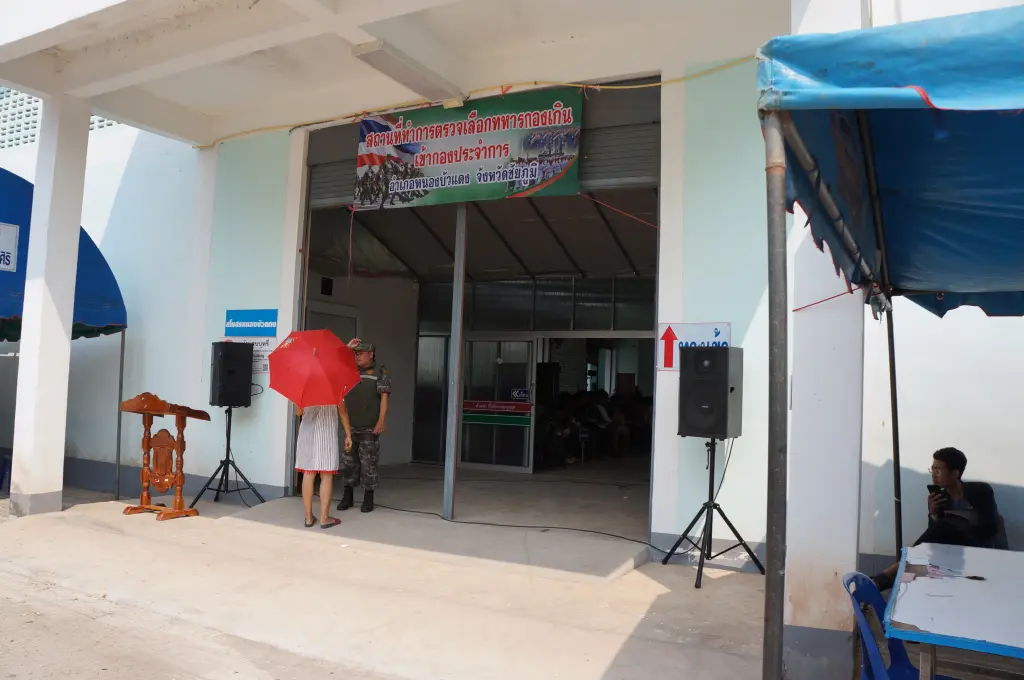
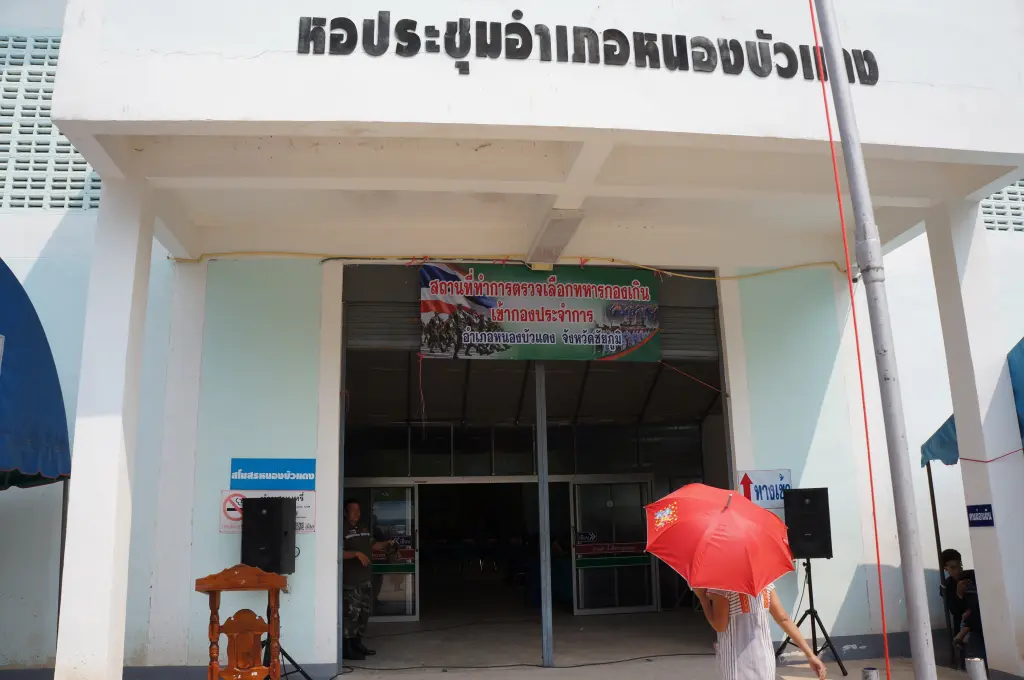
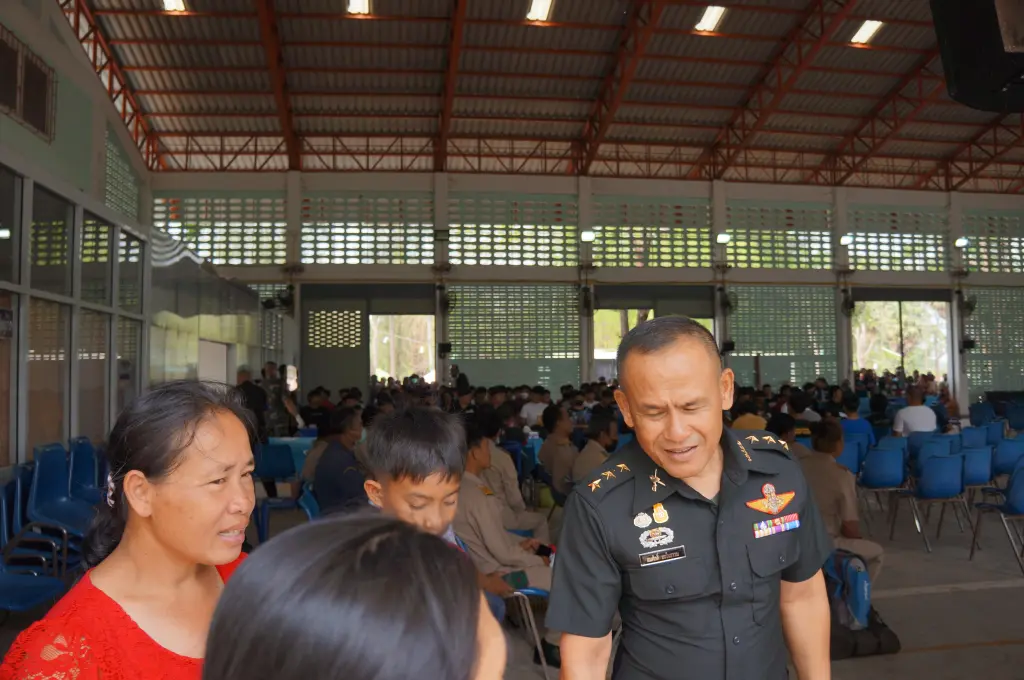
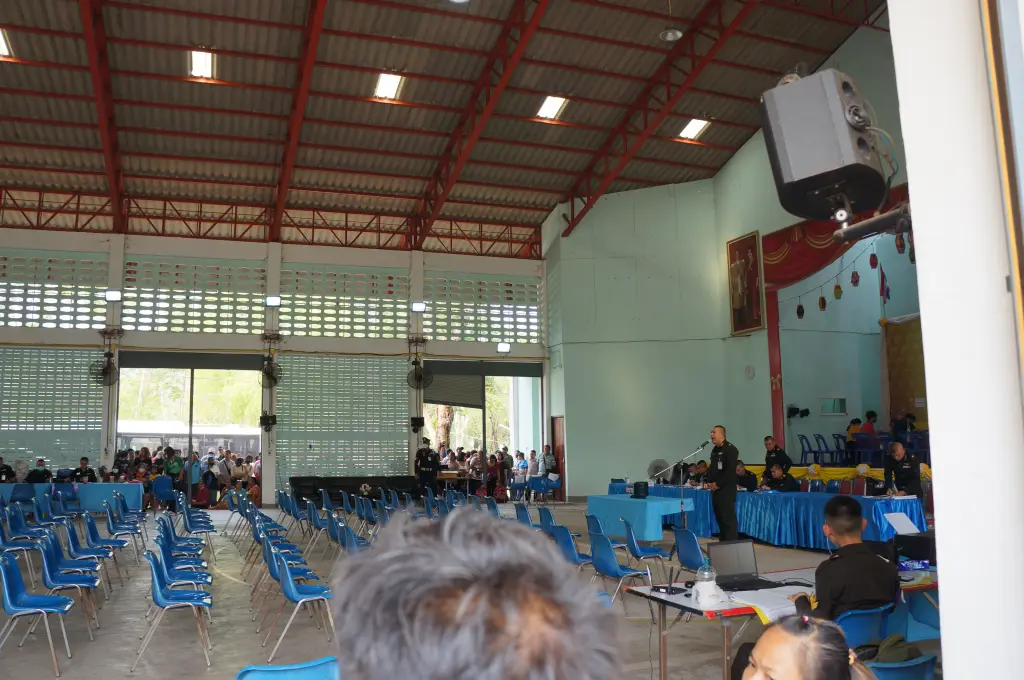
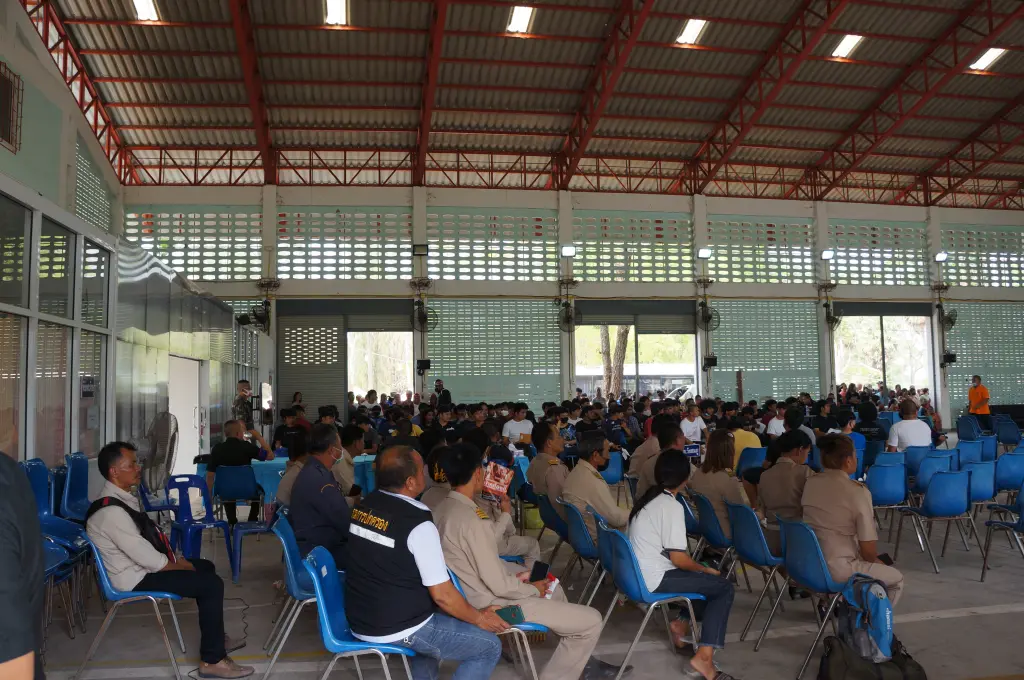
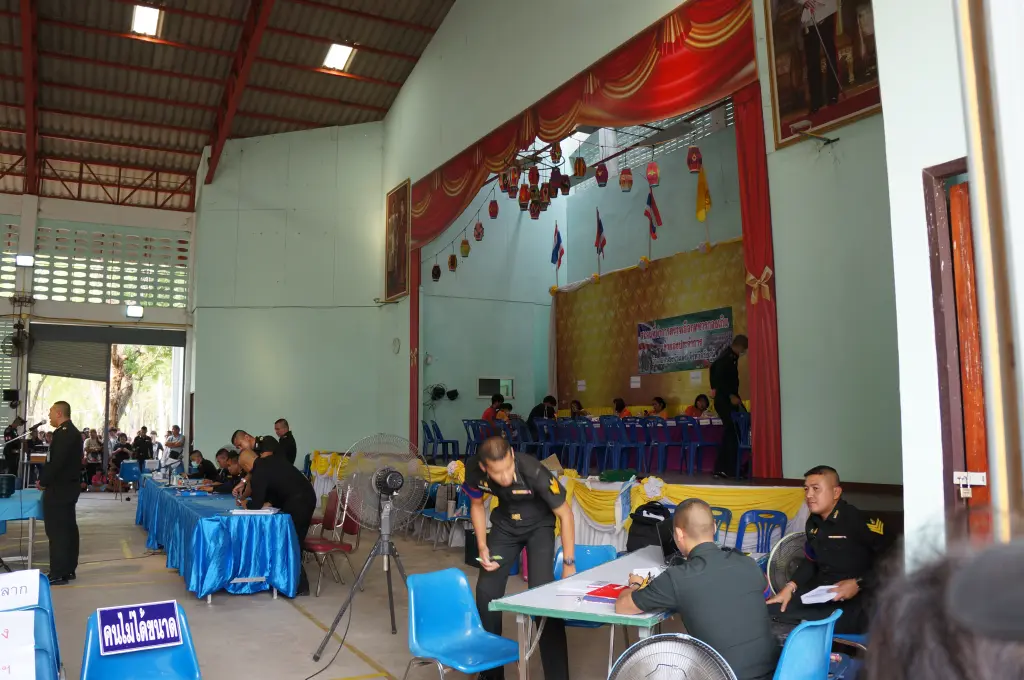
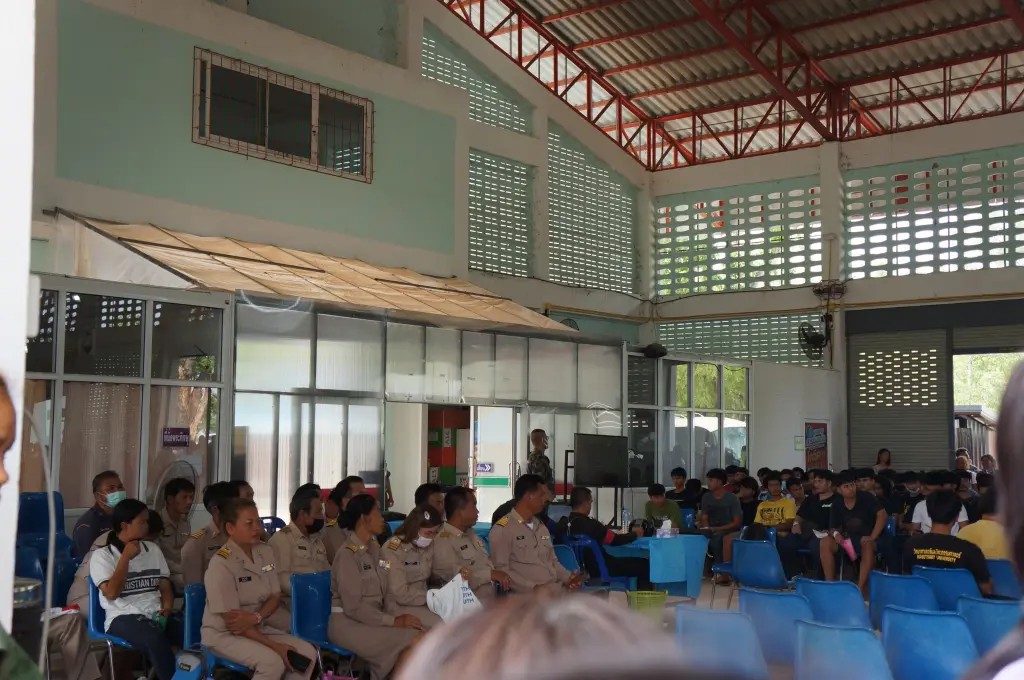
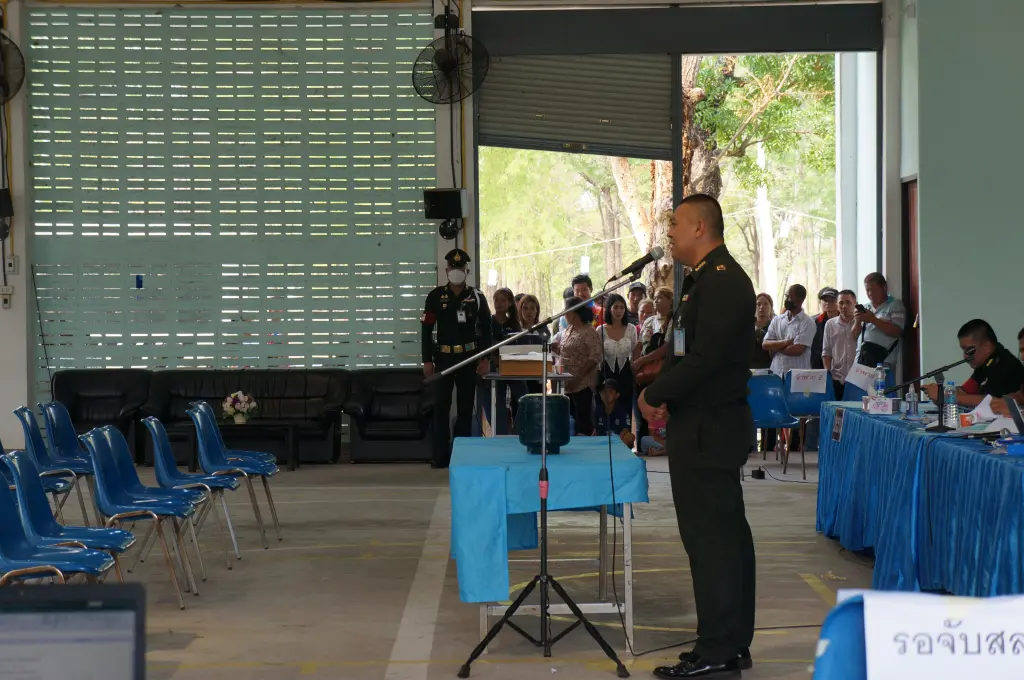
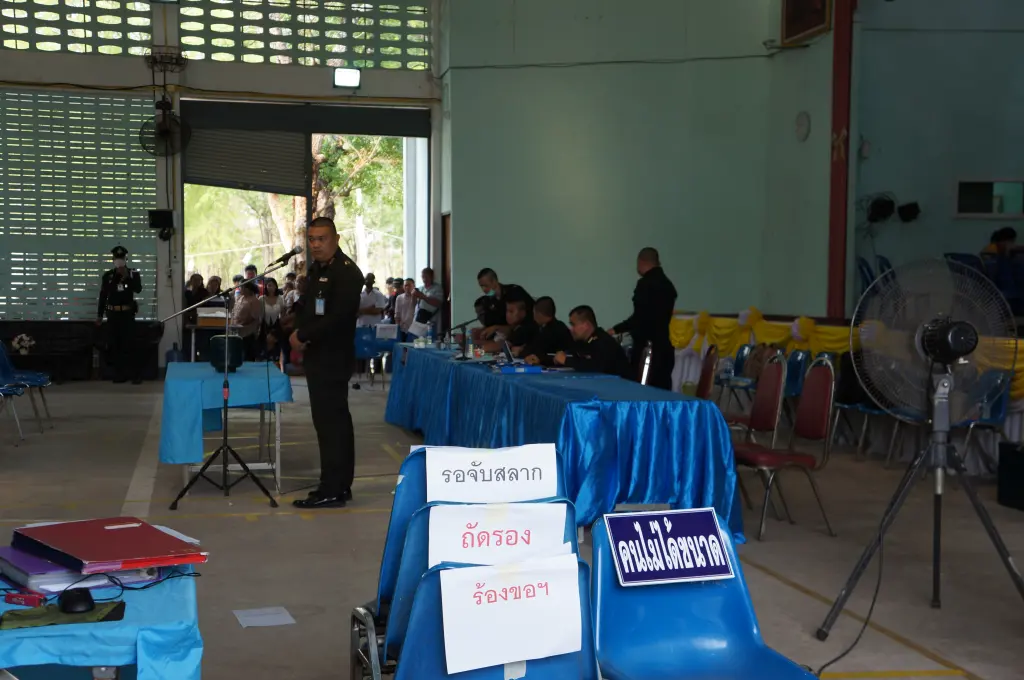
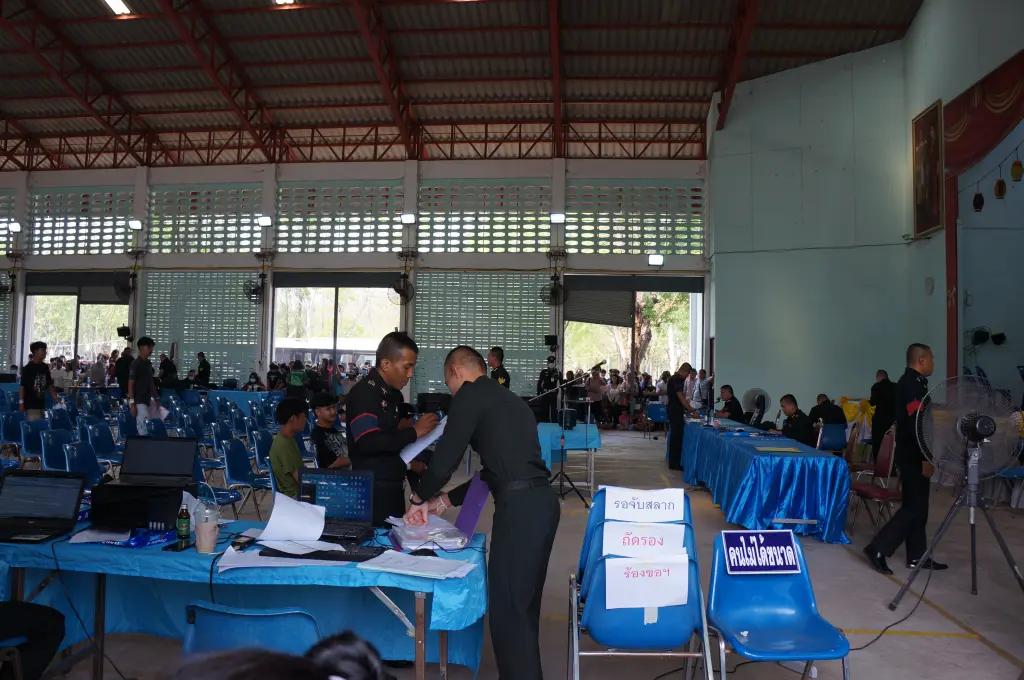
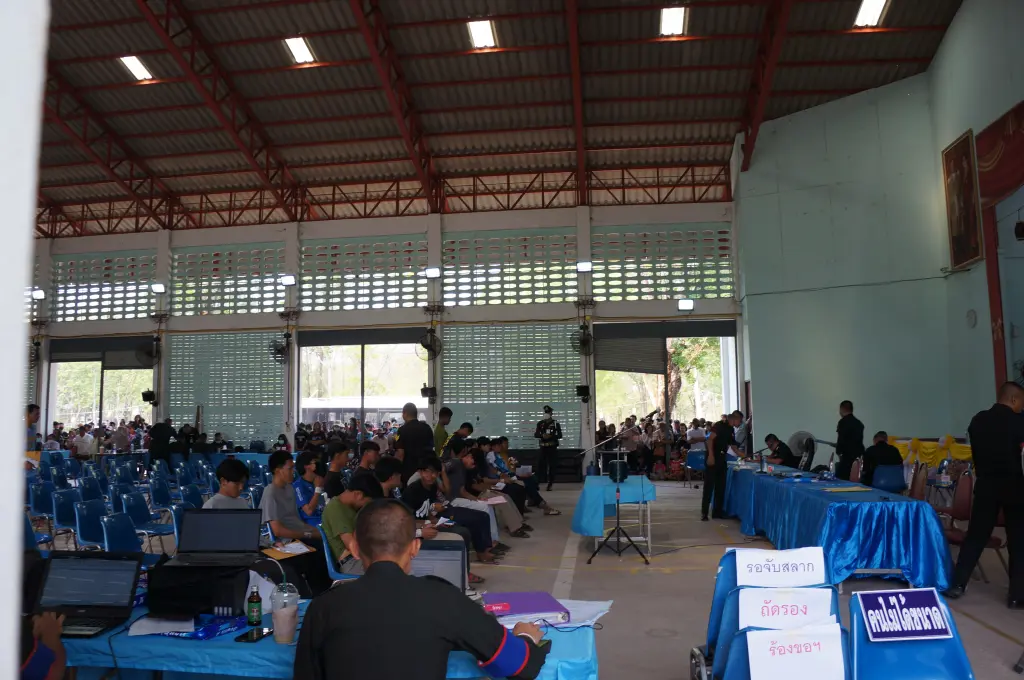
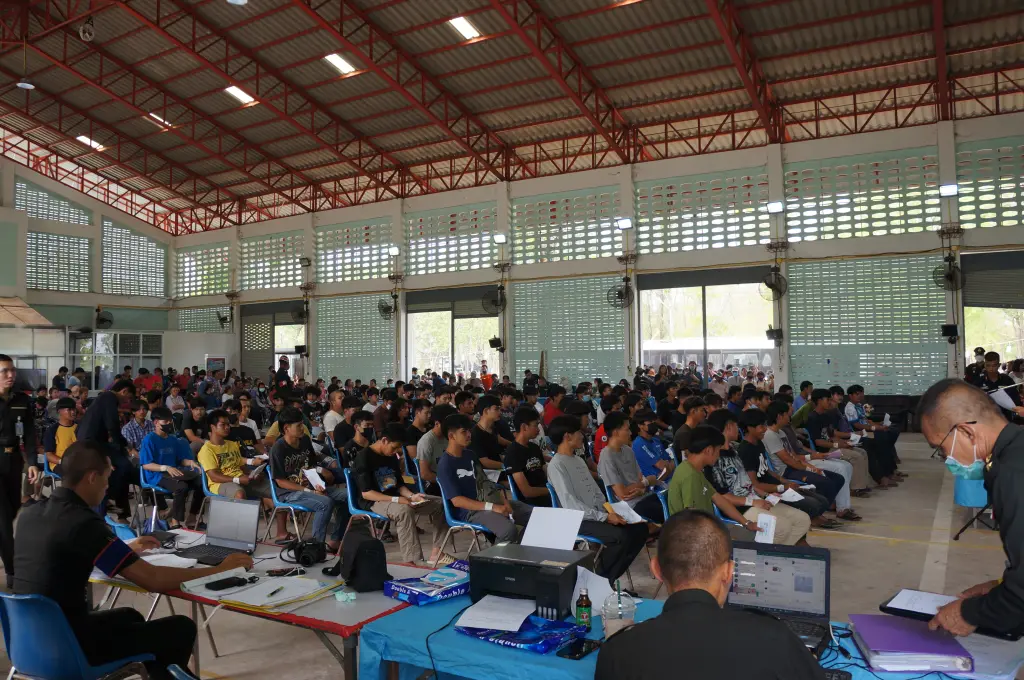
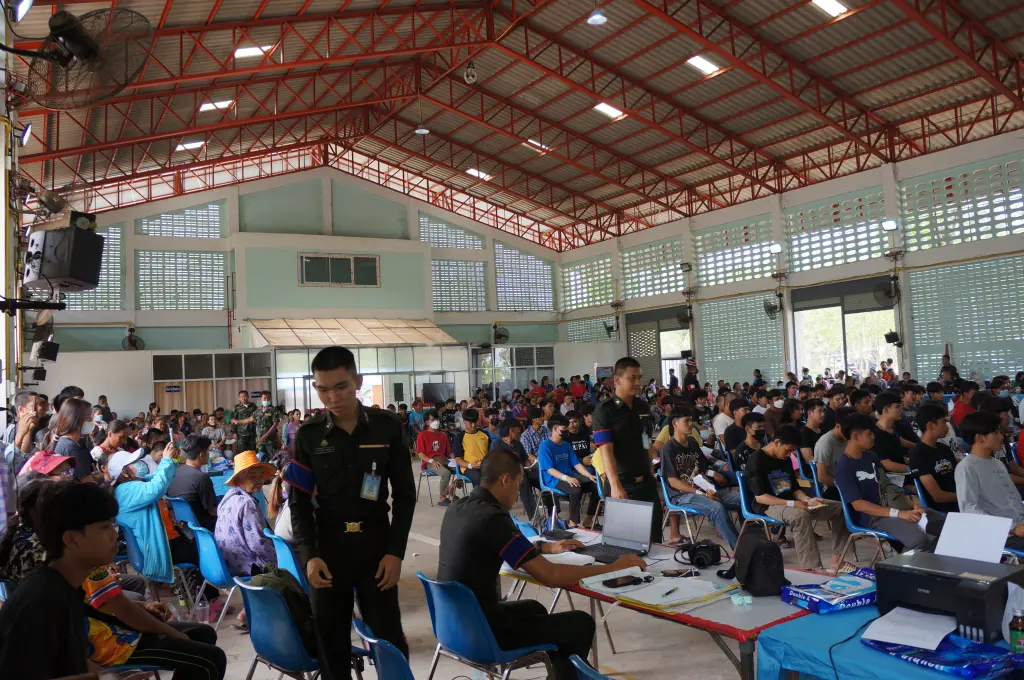
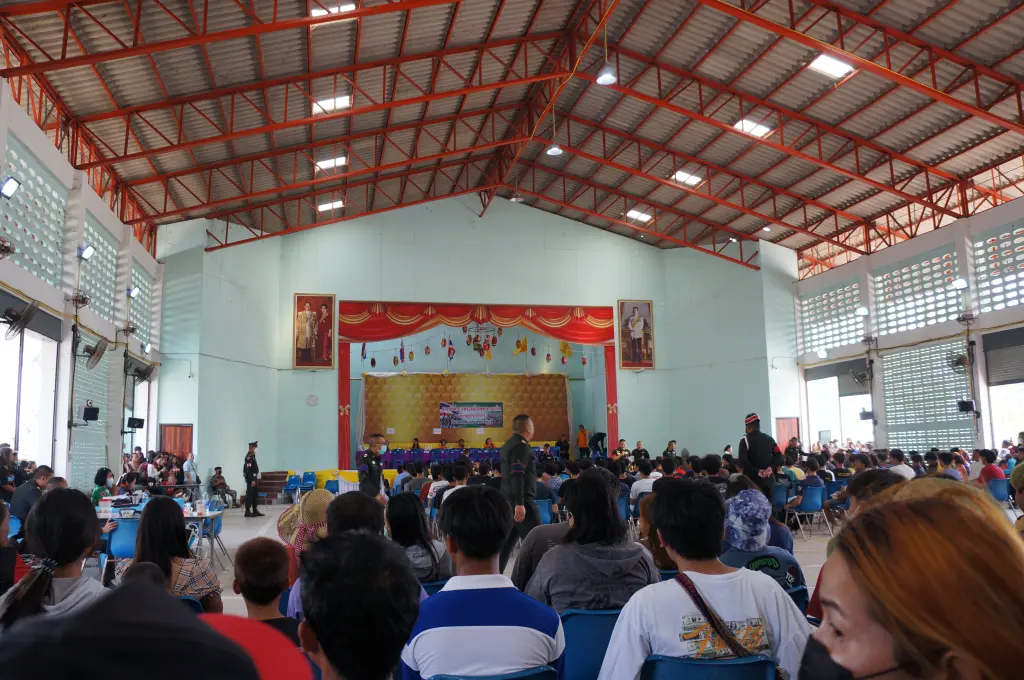
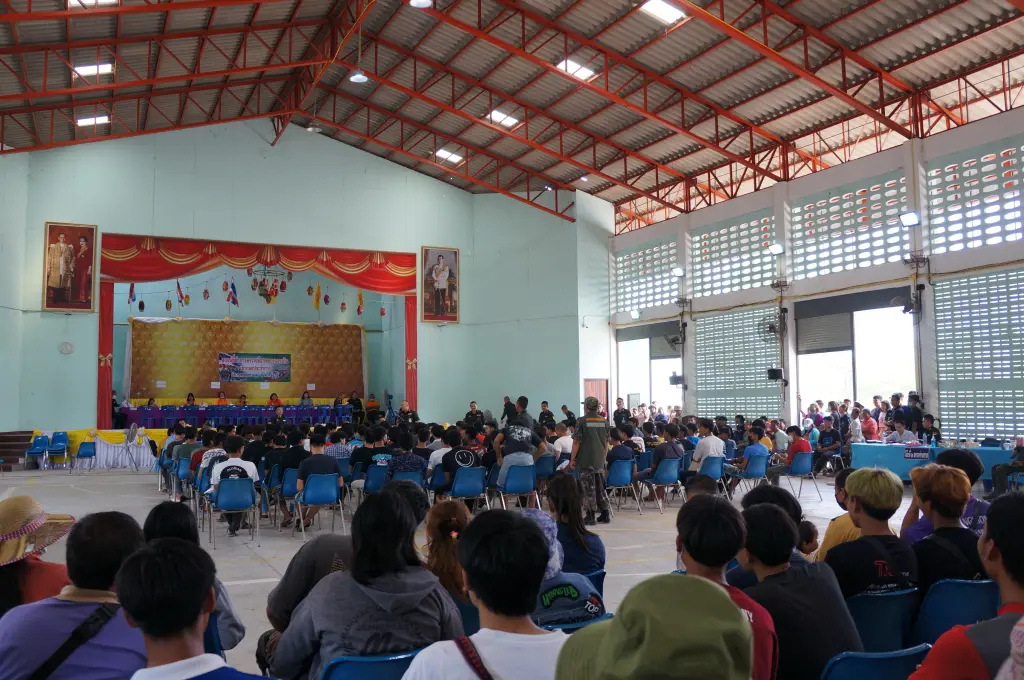
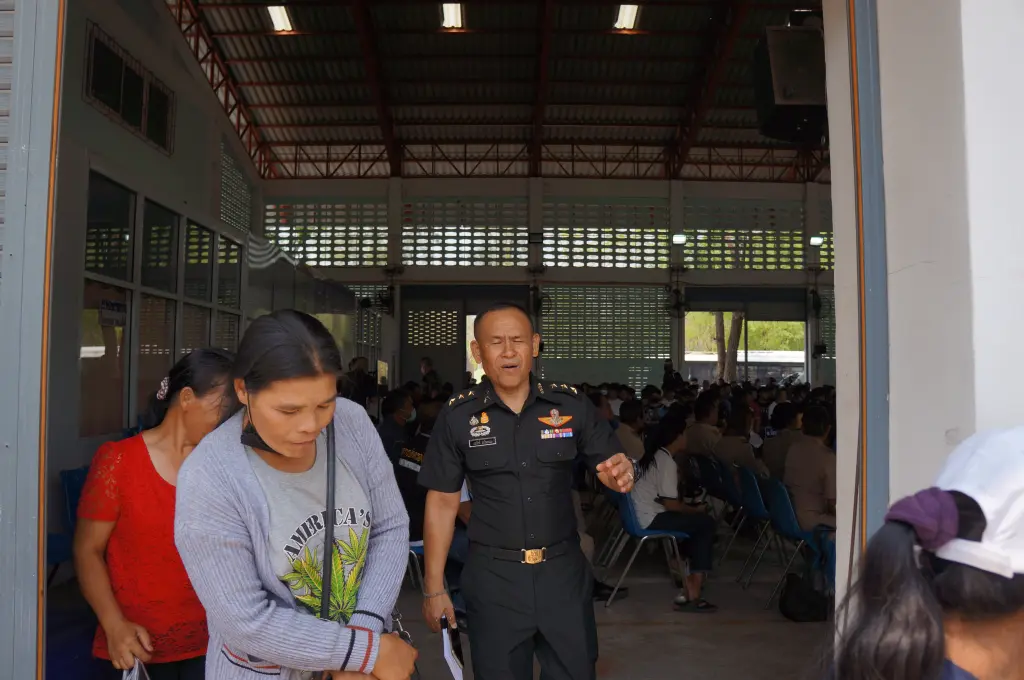
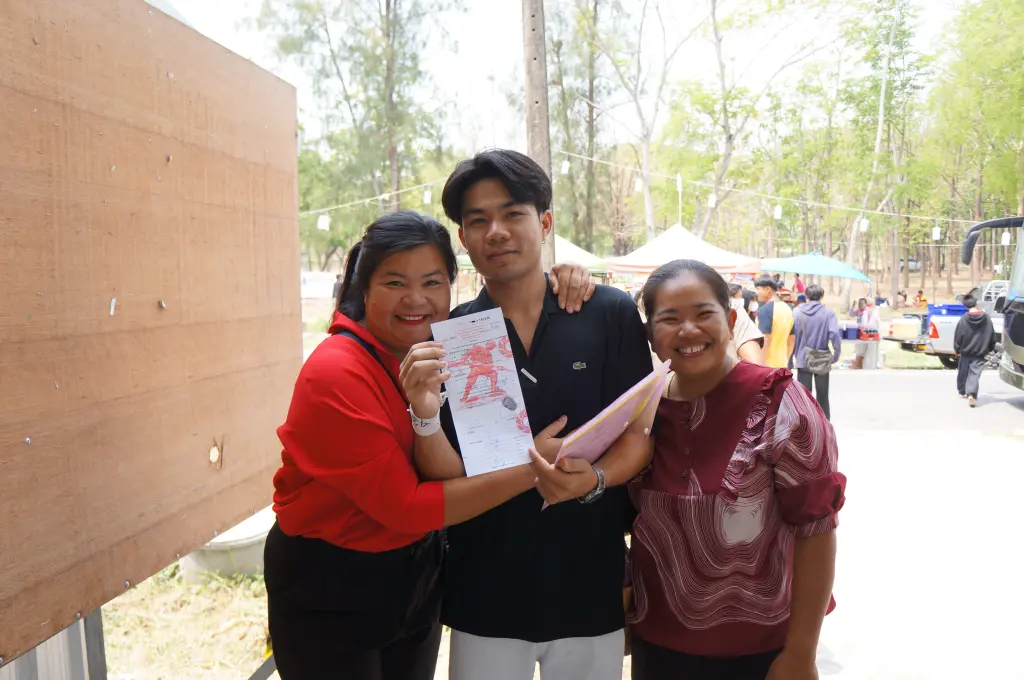
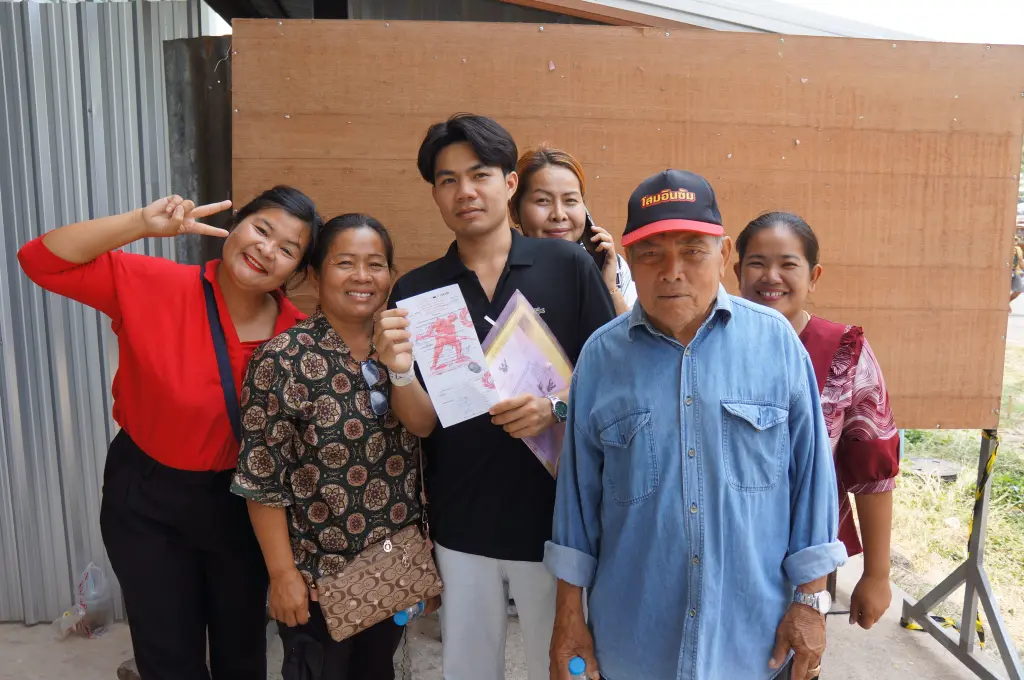
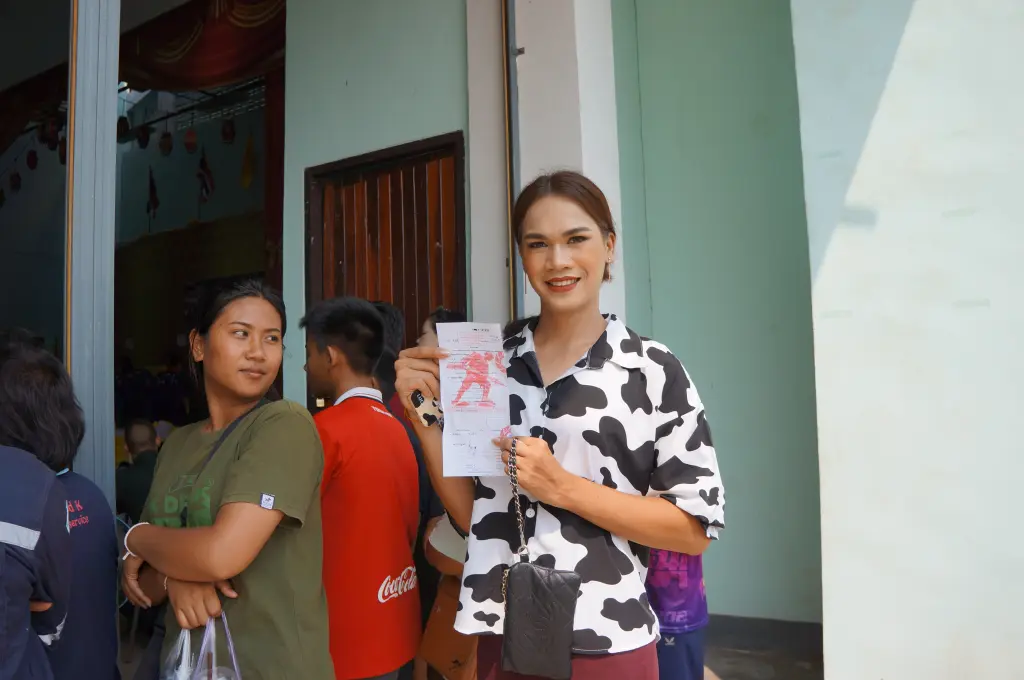
Conscription, or mandatory military service, has been a requirement in Thailand since 1905. Currently, Thai men aged 21 years and older are required to serve in the military for a period of two years. However, exemptions may be granted for medical or other reasons.
Conscription has had a significant impact on Thai society, shaping the country’s political landscape and social attitudes. The Thai military has played a significant role in the country’s politics, with numerous coups and attempted coups over the years. Military service is seen as a rite of passage for Thai men, with those who have served often viewed as more respectable and trustworthy than those who have not.
Exemptions from military service are available for a variety of reasons, including medical conditions, religious beliefs, and educational or employment opportunities. However, obtaining an exemption can be difficult, and some families have resorted to bribery or self-mutilation to avoid military service.
In recent years, there have been calls for reform of the conscription system in Thailand. Critics argue that the system is outdated and does not reflect the country’s changing security needs.
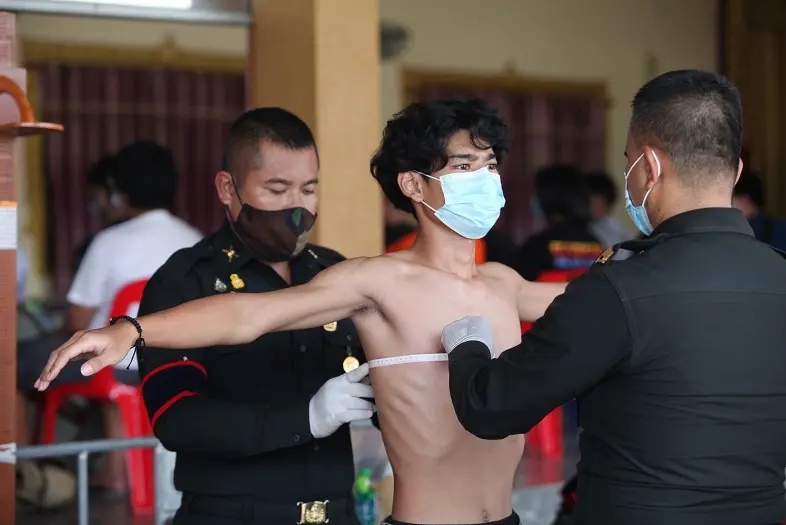
Many young men and their families view military service as a burden and a disruption to their education or employment opportunities. Additionally, there have been concerns about corruption and nepotism in the conscription process, with some families paying bribes to avoid military service.
Conscription has also created social inequalities in Thailand. Wealthier families can afford to send their sons to private universities or pay for medical exemptions, while poorer families have no choice but to send their sons to military service. This has contributed to a growing divide between the rich and poor in Thailand, with conscription seen as a symbol of the country’s social and economic inequalities.
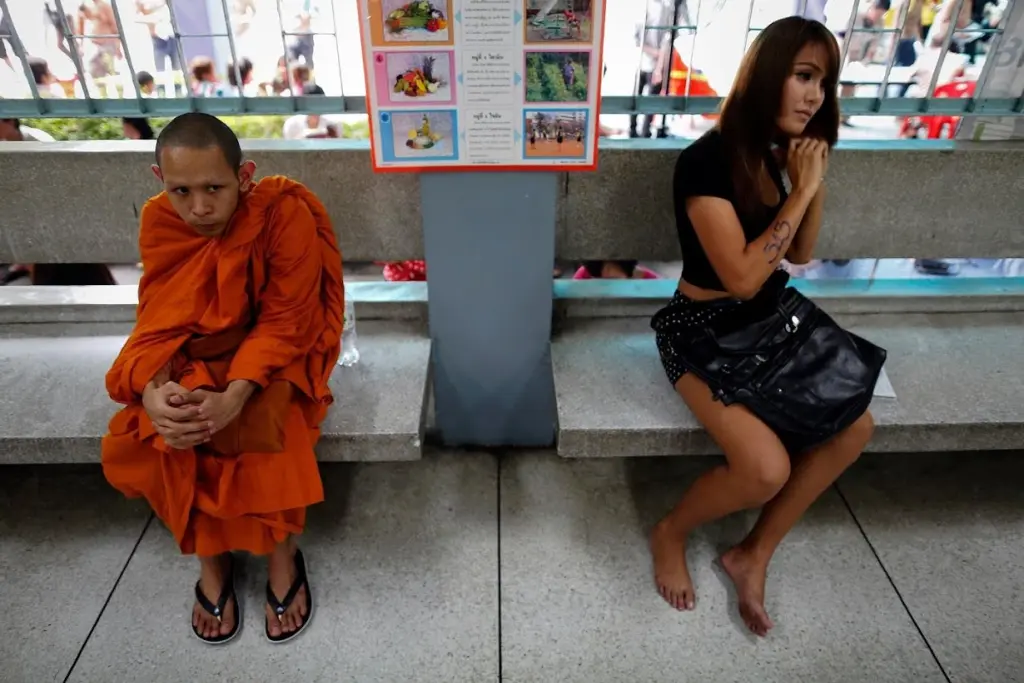
Proponents of conscription argue that it is necessary for national security and instills discipline and patriotism in young men.
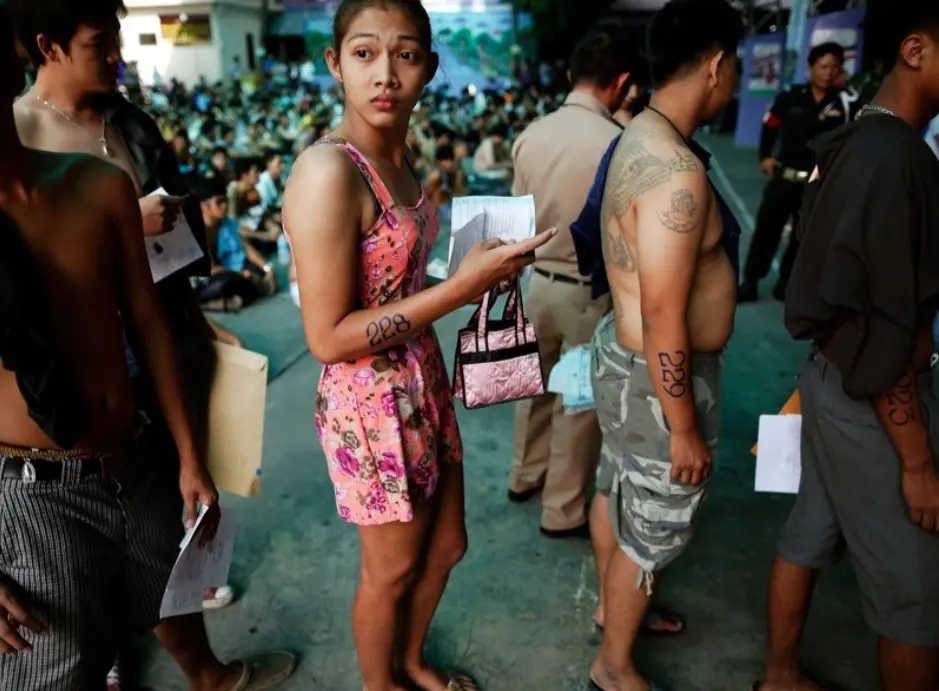
Personnel. As of 2020, the Royal Thai Armed Forces number 360,850 active duty and 200,000 reserve personnel, nearly one percent of Thailand’s population of 70 million. This percentage is higher than that of the US.
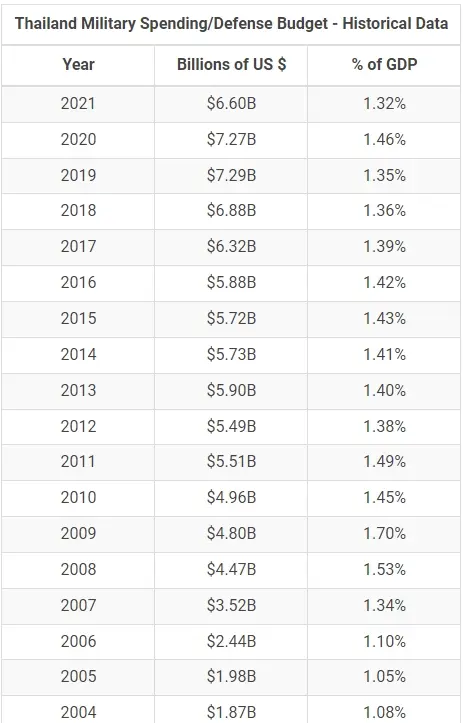
The debate over the need for military conscription has been increasingly featured in the public spotlight. The Future Forward party has always made this issue a key piece of its policy platform, but both the Pheu Thai and Democrat parties signaled that they would be open to abolishing conscription in the future and moving to a fully volunteer service.
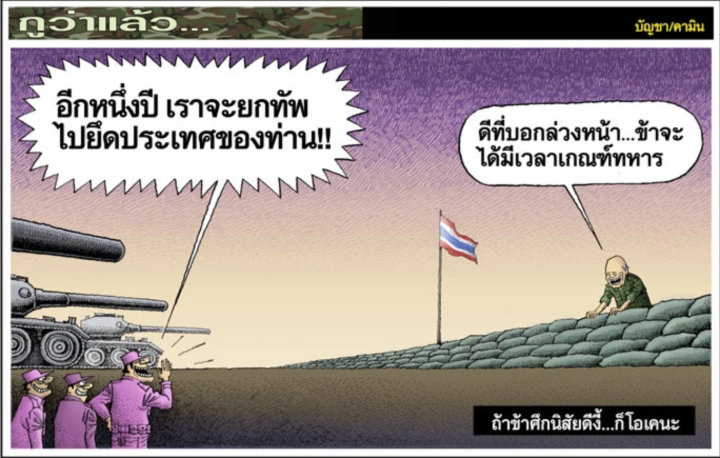

Albert Einstein
